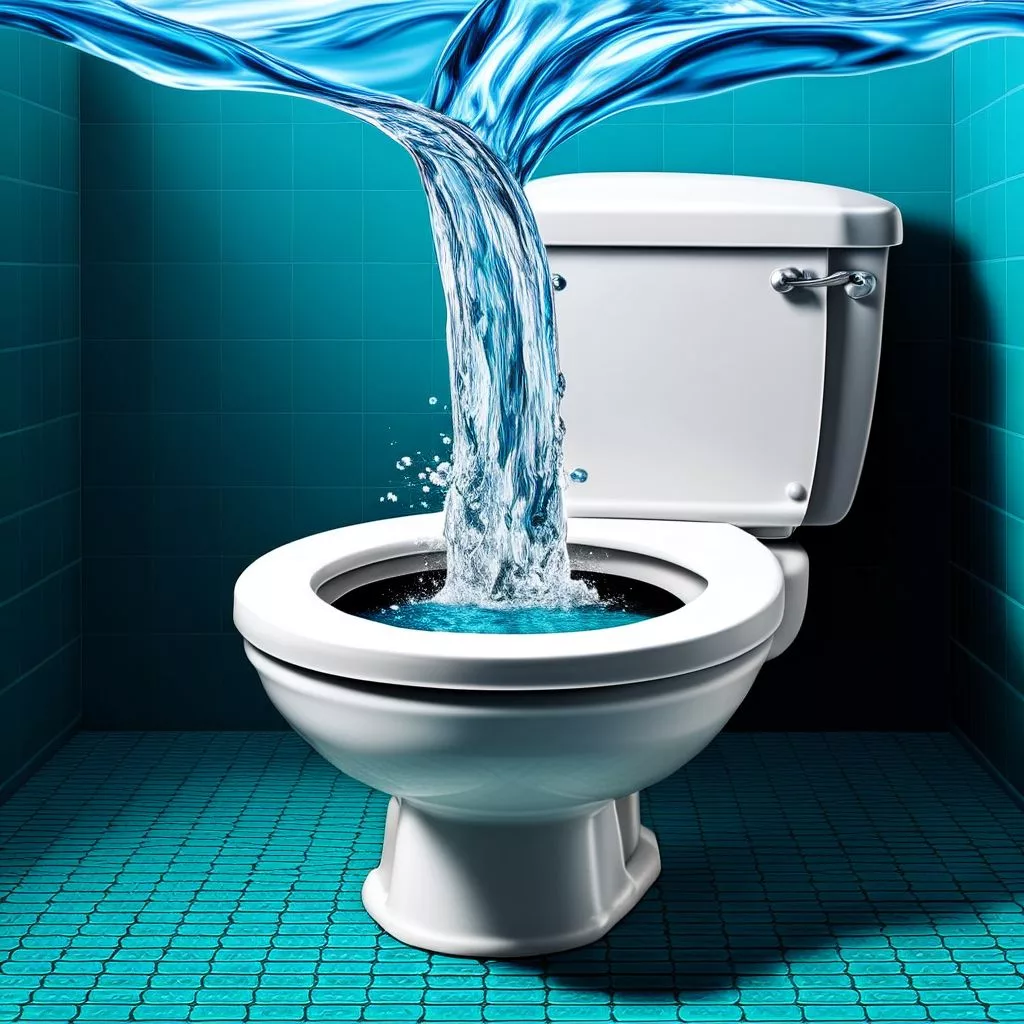Cape Town is tackling its water crisis by looking to the ocean for solutions! The city is considering using seawater for flushing toilets, which could save precious freshwater for drinking and cooking. Many residents are on board with this idea, preferring seawater over recycled water because it seems cleaner and safer. While there are challenges to setting up new pipes and systems, this innovative approach could help Cape Town manage its water better in a changing climate. By thinking outside the box, Cape Town hopes to lead the way for other cities facing similar water issues.
How is Cape Town addressing water management challenges through seawater use?
Cape Town is exploring seawater for toilet flushing to conserve freshwater. This innovative approach addresses the city’s water scarcity, with over 58% of residents favoring seawater over recycled alternatives. By implementing dual pipe systems and raising public awareness, Cape Town aims for sustainable sanitation amidst climate change.
Climate change is altering how urban areas manage water resources, and cities around the world are feeling the impact of rising temperatures and shrinking freshwater supplies. One city at the forefront of seeking new approaches is Cape Town, which has initiated a study to explore the use of seawater for flushing toilets. Led by Teboho Mofokeng, a lecturer in Civil Engineering at the University of Cape Town, this research delves into both the feasibility and public acceptance of such an innovative solution.
Flushing Away Freshwater: An Unsustainable Practice
In Cape Town, a substantial portion of treated drinking water is used for toilet flushing—a practice that consumes 20%-30% of the city’s potable water supply. As freshwater availability becomes more precarious, this method of sanitation is increasingly unsustainable. The water utilized for various household tasks, from bathing to cooking, eventually reaches wastewater treatment plants. Post-treatment, it often ends up in rivers or oceans, contributing to pollution and missing an opportunity for urban water repurposing.
The city’s current strategy raises significant concerns about environmental sustainability. With freshwater becoming scarcer and more valuable, using it for non-essential purposes like toilet flushing is a luxury that many urban areas may soon be unable to afford. The situation prompts the need for innovative approaches to conserve fresh water while meeting sanitation requirements.
Exploring Viable Alternatives: Seawater and Recycled Water
Cape Town’s aging water infrastructure, combined with emerging housing developments, presents a timely opportunity to consider alternative water sources for sanitation. Seawater emerges as a promising candidate, given Cape Town’s coastal geography. Another option is using recycled water treated to remove harmful bacteria, provided it flows through a dedicated closed system for flushing toilets.
Teboho Mofokeng’s research involved surveying 239 residents to gauge their openness to these alternatives. The findings revealed a strong preference for non-potable water sources for toilet flushing, provided the water is clear, odorless, and free from stains. Notably, 58% of respondents favored seawater over recycled water, though preferences varied based on demographic factors such as income, gender, and household size.
Public Sentiment and Financial Implications
The survey indicated that higher-income households generally preferred to continue using drinking water. Conversely, women with higher educational levels were more inclined to pay extra for seawater or recycled water options. Larger households leaned towards recycled water, likely due to their greater water usage.
Financial concerns also surfaced in the study, with residents willing to accept a 5%-10% increase in water bills for access to clean, alternative water sources that meet quality standards. However, there was less enthusiasm for bearing the costs associated with treating wastewater before its discharge into the sea. The majority of respondents agreed to support such measures only if it led to a reduction in their water bills by up to 7%.
Overcoming Logistical Hurdles and Environmental Impact
Switching to seawater for flushing toilets presents several logistical challenges. The establishment of a dual water pipe network—separate pipes for drinking water and seawater—requires substantial infrastructure investment. Due to seawater’s corrosive nature, plastic pipes would be necessary, though their environmental impact is a cause for concern. Alternatives like steel or concrete pipes, which are more environmentally friendly, would need frequent replacement due to corrosion.
Additional infrastructure would be required to store and treat seawater, incurring further expenses. The increased energy demand for these processes, predominantly supplied by coal-fired power plants, could exacerbate global warming unless balanced by renewable energy sources. Despite these challenges, successful implementations in cities like Hong Kong illustrate the potential benefits of such systems.
A Vision for a Sustainable Tomorrow
Predictions indicate a drier future for southwestern Africa, characterized by unpredictable rainfall and frequent droughts. This dire outlook underscores the urgency for Cape Town to invest in unconventional water sources. Raising public awareness and educating residents are essential to alter perceptions and foster acceptance of using alternative water sources for certain household activities.
Mofokeng’s research not only addresses a critical environmental issue but also charts a path toward sustainable urban living. Cape Town’s experience could serve as a model for other global cities confronting similar challenges. By leveraging innovative technologies and fostering community engagement, Cape Town might set a new standard for effective water management in an era marked by climate change.
In conclusion, Cape Town’s initiative to explore the use of seawater for toilet flushing represents a significant step toward sustainable water management. As climate change continues to challenge cities worldwide, the lessons learned from this pioneering study could pave the way for more resilient urban water systems.
FAQ: The Future of Water Management in Cape Town
How is Cape Town addressing water management challenges through seawater use?
Cape Town is exploring the use of seawater for toilet flushing to conserve freshwater resources. This innovative approach aims to address the city’s significant water scarcity, with over 58% of residents preferring seawater to recycled water. The city plans to implement dual pipe systems and educate the public to promote sustainable sanitation in the face of climate change.
Why is using freshwater for toilet flushing considered unsustainable?
Currently, a considerable amount of treated drinking water—20%-30% of the city’s potable supply—is used for toilet flushing in Cape Town. As freshwater supplies dwindle and become increasingly valuable, relying on it for non-essential purposes like toilet flushing is no longer feasible, prompting the need for alternative water sources.
What alternatives to freshwater is Cape Town considering for sanitation?
Cape Town is considering two main alternatives: seawater and recycled water. Seawater is a viable option due to the city’s coastal location, while recycled water, treated to eliminate harmful bacteria and distributed through a dedicated closed system, is another potential source for toilet flushing.
What did the public survey reveal about residents’ preferences for toilet flushing options?
A survey conducted by Teboho Mofokeng found that 58% of respondents preferred seawater over recycled water for toilet flushing, valuing clear, odorless, and stain-free water. Preferences varied by demographic factors, with higher-income households more likely to want to continue using drinking water.
What financial implications did the survey uncover regarding alternative water sources?
Residents expressed a willingness to accept a 5%-10% increase in their water bills for access to clean, alternative water sources that meet quality standards. However, there was resistance to covering costs associated with treating wastewater before it is discharged into the sea, with most respondents supporting such measures only if they resulted in a reduction in their water bills.
What logistical challenges does Cape Town face in implementing seawater flushing systems?
The transition to seawater for toilet flushing involves several logistical hurdles, including the need for a dual pipe network and additional infrastructure for storing and treating seawater. Concerns about the corrosive nature of seawater necessitate the use of plastic pipes, which raises environmental questions. Moreover, the increased energy demand for these systems poses sustainability challenges unless balanced with renewable energy sources.









